Do you desire to live a blessed life? If we were all to be honest, I believe we would all answer Yes! to this question. The reality of what a blessed life looks like may be different to each one of us, however, we all desire to live a life that is blessed. How do we actually achieve a blessed life? This week’s Torah Portion contains the keys to living a blessed life.
“עקב” -“Ekev”
This week’s Torah Portion is called “עקב” -“ekev,” a Hebrew word which is used in a figurative sense to mean “because,” “as a result of…,” or “as a consequence of…” We see the meaning of this word clearly illustrated in the opening verse of this week’s Torah Portion:
Then it shall come about, because you listen to these judgments and keep and do them, that the LORD your God will keep with you His covenant and His lovingkindness which He swore to your forefathers. – Deut. 7:12
Moses was instructing the children of Israel that as a result of (“because”) their adhering to the commands of God, He would keep His covenant with them.
The word “עקב” -“ekev” comes from the Hebrew root “עקב” – “akev,” which literally means “heel,” the part of the foot below the ankle, or it can mean “rear,” “footprint,” or “footstep” as well. The first time that the Hebrew word “עקב” -“akev” appears in the Bible is in the book of Genesis, in the Garden of Eden.
Adam’s Disobedience
After the fall of Adam and Eve, the LORD God pronounced the following judgement on the serpent:
And I will put enmity between you and the woman, and between your seed and her seed; He shall bruise you on the head, and you shall bruise him on the heel. – Gen. 3:15
The head of the serpent and the heel (“עקב” -“akev”) of man were to be continual places of weakness and vulnerability.
Abraham’s Obedience
The next time we come across a form of the word “עקב” -“ekev” in the Bible is in the life of Abraham. God tested Abraham by asking him to offer his son Isaac as a sacrifice to the LORD. Abraham passed the test by showing his willingness to obey the voice of the LORD, however, he was kept from actually taking his son’s life (Gen. 22).
As a result of Abraham’s obedience, God blessed Abraham by saying: “In your seed all the nations of the earth shall be blessed, because you have obeyed My voice.” (Gen. 22:18) The blessing of God to Abraham was a result of Abraham’s listening to the voice of God. It was “because” (“עקב” – “ekev”) Abraham listened to God’s voice that all of the nations of the earth would be blessed through his seed.
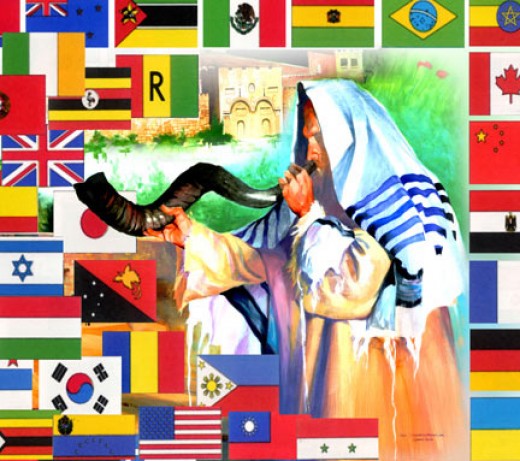
Through these first two examples in the Bible, we see how the word “עקב” -“akev” literally means “heel,” a physical part of the body which is also a place of weakness and vulnerability, and in a figurative manner the word “עקב” – “ekev” means “because of” or “as a consequence of,” relating to a person’s decision when reacting to a test, as in the life of Abraham. The third time that the word “עקב” – “ekev” appears in the Bible combines a literal and figurative form of the word in a very unique manner.
Abraham’s Grandson – Yakov
Isaac was the son of promise that God gave to Abraham through his wife Sara. Isaac married Rebekah when he was 40 years old and, after being barren for 20 years, Rebekkah finally became pregnant and gave birth to twin boys:
When her days to be delivered were fulfilled, behold, there were twins in her womb. Now the first came forth red, all over like a hairy garment; and they named him Esau. Afterward his brother came forth with his hand holding on to Esau’s heel, so his name was called Jacob; and Isaac was sixty years old when she gave birth to them. – Gen. 25:24-26
Jacob was literally named according to his action of grasping onto his brother’s heel, “עקב” – “akev.”
The name “Jacob” in Hebrew is “יעקב” – “Yakov” which means “to grasp the heel” and can also mean “to come after.” The meaning of “coming after” is directly related to the way in which Yakov followed after his brother in the birth order. This is probably how the figurative meaning of “עקב” -“akev” developed; that which comes after, because of, as a result of, or as a consequence of.

The Life of Yakov
Before Rebekah delivered the twins which were in her womb, God had prophesied to Rebekah regarding the impact of the two lives she was carrying:
The LORD said to her, “Two nations are in your womb; and two peoples will be separated from your body; and one people shall be stronger than the other; and the older shall serve the younger.” – Gen. 25:23
The outcome of the lives of Yakov and Esau were determined by God before they were even born, Esau, the elder, would serve Yakov, the younger.
Despite the birth order of Yakov and Esau, God had declared that the older would serve the younger. This goes against every natural law, however, God had determined their futures. Although it was a prophetic reality that Yakov would be the chosen one, it was a lifelong struggle for Yakov to see the fulfillment of this Word of God in his life.
Pursuing the Prophetic
Even though we don’t know if Rebekah ever shared the prophetic word that she received from God with her son Yakov, we do know that Yakov pursued the fulfillment of this prophecy in his life. At some point along the journey of life, Yakov was able to buy the birthright from Esau for a bowl of lentils (Gen. 25:27-34). Yakov desired that which was prophesied over his life and he was relentless in making sure that he secured the birthright for himself.
At a later date, when Isaac was old and sought to bless Esau, Rebekah urged Yakov to pretend to be his brother Esau so as to obtain the blessing of the firstborn from his father. Yakov succeeded in obtaining the blessing but at the cost of making his brother his enemy:
When Esau heard the words of his father, he cried out with an exceedingly great and bitter cry, and said to his father, “Bless me, even me also, O my father!” And he said, “Your brother came deceitfully and has taken away your blessing.” Then he said, “Is he not rightly named Jacob, for he has supplanted me these two times? He took away my birthright, and behold, now he has taken away my blessing.” – Gen. 27:34-36
Esau was angry with his brother and declared that he is rightly called “יעקב” – “Yakov” and then he continued, “ויקבני” – “va’yakeveni” – “and he has taken me by the heel.” Esau used the name of Yakov to explain the actions of his brother against him.
Yakov – The Heel Grabber
The play on words in verse 36 above provides a deeper meaning of the name Yakov. Yakov, “the one who grasps the heel,” is the one who worked to obtain something as a result of his actions. Esau was implying that Yakov had been grabbing at his heel ever since birth and that he has succeeded twice to overtake him. At that point in time, Yakov had obtained the legal right of the birthright and the blessing of the firstborn, however, he would only realize the fulfillment of these legal rights twenty years later as he continued to seeking the blessing in his life.

The Outcome of a Tested Life
Yakov, faced many tests in his life in the twenty years after receiving the blessing of the firstborn. Through each of those various tests, Yakov proved himself faithful to God. Exactly twenty years after receiving the blessing from his earthly father, Yakov wrestled with God and sought to be blessed by Him as well. Yakov received the blessing from God and God changed his name to Israel (Gen. 32:24-31).
The twenty years of testing was a purifying time in Yakov’s life. Yakov learned to hear and obey the voice of God and as a result (“עקב” -“ekev”) God blessed his life abundantly. This is the theme of this week’s Torah Portion. God was inviting His people through Moses to obey His Word fully. God promised great blessing in the Promised Land if they would only be obedient to His voice and to His Word.
There is a prophetic reality that we as God’s people need to pursue. God has given us His promises in His Word and we need to properly appropriate them in our life today. God continually calls us to live by faith against all odds. We are reminded in this week’s Torah Portion that God’s prophetic Word is real and in order to see it realized in our lives we must listen to His voice and walk in obedience. This is the main point of “עקב” -“ekev,” from the Garden of Eden until today.
The Consequences
The word “עקב” -“ekev” is only used twice in the book of Deuteronomy and both instances appear in this week’s Torah Portion. The first appearance is found in the first verse of this week’s Torah Portion:
Then it shall come about, because you listen to these judgments and keep and do them, that the LORD your God will keep with you His covenant and His lovingkindness which He swore to your forefathers. – Deut. 7:12
The second appearance of this word “עקב” -“ekev” is found in the chapter that follows:
Like the nations that the LORD makes to perish before you, so you shall perish; because you would not listen to the voice of the LORD your God. – Deut. 8:20
Whereas the first appearance of “ekev” in Deuteronomy 7 is used in a positive context, one of blessing, the second appearance is used in a very negative context, one of judgement. The word “עקב” -“ekev” is neither positive nor negative but simply relates the consequences of actions performed.
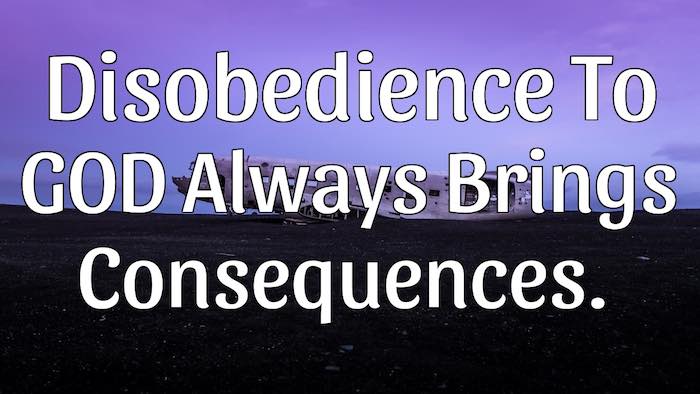
God Tests His People
Sandwiched between these two appearances of the word “עקב” -“ekev” in the book of Deuteronomy is a reminder of how God tested the Israelites during their desert wanderings:
You shall remember all the way which the LORD your God has led you in the wilderness these forty years, that He might humble you, testing you, to know what was in your heart, whether you would keep His commandments or not. He humbled you and let you be hungry, and fed you with manna which you did not know, nor did your fathers know, that He might make you understand that man does not live by bread alone, but man lives by everything that proceeds out of the mouth of the LORD. – Deut. 8:2-3
God allowed the Israelites to face various challenges during the 40 years in the desert to test them and to allow their hearts to be exposed. It was through testing and hardship that God saw whether they would keep His Word or not.
One of the ways God tested the Israelites was through letting them become hungry and then providing them with manna for the following reason: “that He might make you understand that man does not live by bread alone, but man lives by everything that proceeds out of the mouth of the LORD.” The children of Israel ate manna every day for the 40 years that they were in the wilderness. How did the LORD teach them this truth through the provision of manna?
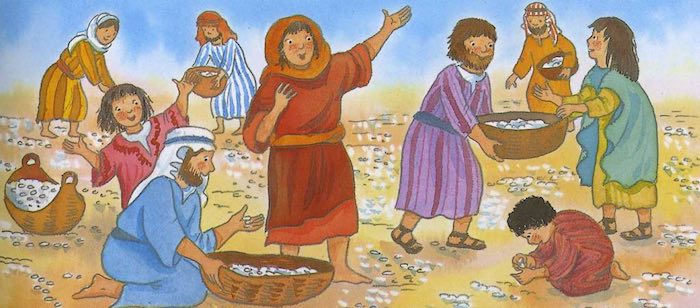
The Manna Test
The LORD provided manna for the children of Israel daily. They were to collect what they needed for each person each morning but they were not to leave any leftover until the next morning (Ex. 16:19), except for the Sabbath. In preparation for Sabbath day, they were to collect twice as much on the sixth day so that they would have enough for the sixth and seventh days. They were also to prepare the manna on the sixth day and save it for the seventh day, the Sabbath day (Ex. 16:22-26).
The provision of manna by God for the people of Israel was a test of their obedience to the voice of God. They were daily dependent on the LORD and they were to continually keep His Word as He commanded them regarding the manna. Their obedience in collecting, preparing, properly preserving, and discarding of manna was a test of constantly living according to every Word which proceeded out of the mouth of God. The LORD was not only providing for their physical needs through the manna, He was also training them to daily live according to His Word.
Are you daily living according to the Word of God?
The forty years of wandering in the wilderness was filled with daily routine but also with various tests and temptations. God used that time in the lives of the Israelites to refine them and train them to listen to His voice and obey His Word. Our individual reactions and responses to daily tests and temptations exposes our hearts and provide the true testimony of our faith in God.
Yeshua’s Wilderness Experience
The New Testament records that before Yeshua began His earthly ministry He was led by the Spirit into the wilderness for 40 days to be tempted by the devil (Matt. 4:1-2). Yeshua fasted during those 40 days and 40 nights.
After Yeshua had fasted 40 days and 40 nights we are told that Yeshua became hungry and then the devil came to him:
And the tempter came and said to Him, “If You are the Son of God, command that these stones become bread.” But He answered and said, “It is written, ‘Man shall not live on bread alone, but on every word that proceeds out of the mouth of God.’” – Matt. 4:3-4
The devil tried to get Yeshua to prove His power and satisfy His hunger through His own strength. Yeshua is the Son of God and had the power to command those stones to become bread but He knew that He did not come to earth to simply fill His stomach.
Yeshua replied to the devil by quoting from Deuteronomy 8:3 in the Torah; “Man shall not live on bread alone, but on every word that proceeds out of the mouth of God.” Yeshua, as a man, was learning to completely depend on His Father in heaven. Yeshua was learning what it means to not give into every craving of the flesh, but rather to live according to the Word of God. Bread is not evil. We need to eat and sustain life through food but Yeshua was illustrating what it means to live by everything that proceeds out of the mouth of the LORD by resisting the temptation of the devil.
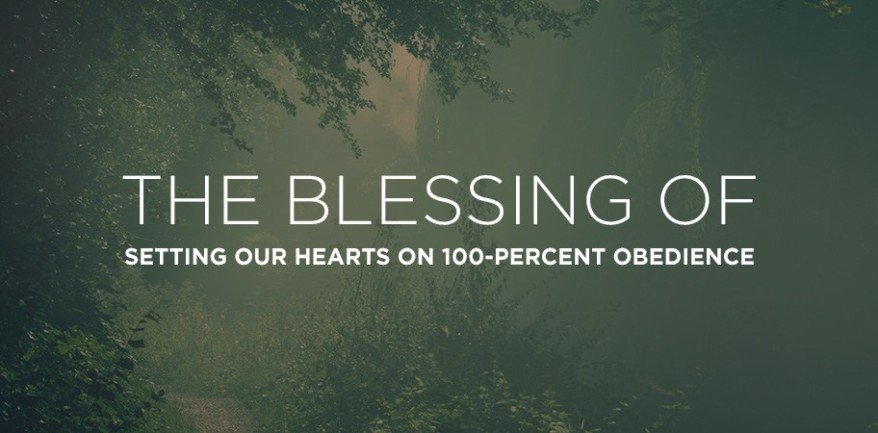
Holding Firm to God’s Word
The devil continued to try to tempt Yeshua into his traps two more times but Yeshua responded each time by quoting God’s Word from the book of Deuteronomy. Yeshua knew the Word of God and was able to properly apply it by responding to the attacks of the enemy. Yeshua illustrated for us what it means to live out God’s Word in everyday life, especially when we face temptation.
As we reflect on the Torah Portion of “עקב” -“ekev” we need to remember that we are constantly faced with choices in life to either obey God’s Word or not. There is a guaranteed blessing in hearing and obeying God’s Word and there is certain punishment for rejecting God’s Word. Choose God’s way and live a blessed life.
Shabbat Shalom!
If you enjoyed reading this article, share it today with friends! We also invite you to sign up for our weekly Torah Portion commentary on the sidebar to the right.
Help keep our weekly commentaries free and available to all. Click here to donate today:
Torah Portion: Deut. 7:12 – Deut. 11:25
Haftara: Isaiah 49:14 – Isaiah 51:3
Return to Torah Portion Homepage
Copyright Jewels of Judaism. All rights reserved 2016

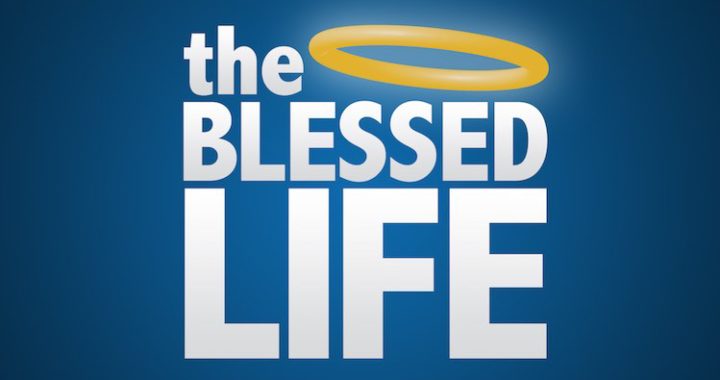

While I was reading this article I was thinking what kind of blessed life I really want?
When I was young, like most of the young people, a blessed life meant a life without lacking of material, or a marriage life with couple of lovely children, or a life that I could travel around the world, or having a successful career. I’ve never asked for a blessed life until one and a half years ago. I realized something that I really wanted, a blessing that I was eager for long time. But I didn’t dare to ask God because I didn’t believe that He would bless me.
But in a prayer, God gave me Psalm 37:4 and encouraged me to ask what I was eager for. At the beginning I was focused on the second half of the verse and asking for ‘my heart’s desire’. But gradually God changed me, especially when I got closer to Him and really believed His love to me.
I found that ‘take delight in Him’ became the focus in my prayer and it also became more realistic in my life. This experience did change my understanding of ‘blessing’. I used to think that a blessed life is a life with everything that I wanted. But now, a blessed life is a life with my loving God, my heavenly Father and my beloved Savior, Yeshua! I still didn’t have the thing that I was asking from one and half years ago but I felt satisfied, I knew I’m blessed, because I have the greatest gift in my life!
I believe that this is the message of this week’s Parasha. We obey His words because we love Him; We love Him because He loved us first. And this intimate relationship with our heavenly Father is the greatest blessing of our lives!
Thanks for your inspiring commentary, Daniel!
Nancy,
Thank you for sharing a bit of your journey with desiring a Blessed Life. God should always be our main focus in life and it is good to know that when He is the center, He blesses the other areas of our life as well.
May you continue to walk in all the blessings that He has for you!
Daniel
Thanks Daniel. I will continue to walk in His way and receive more blessings from Him. I’m still asking the thing I’ve been asking for. We’ll see how He blesses me in this area.
Blessings,
Nancy